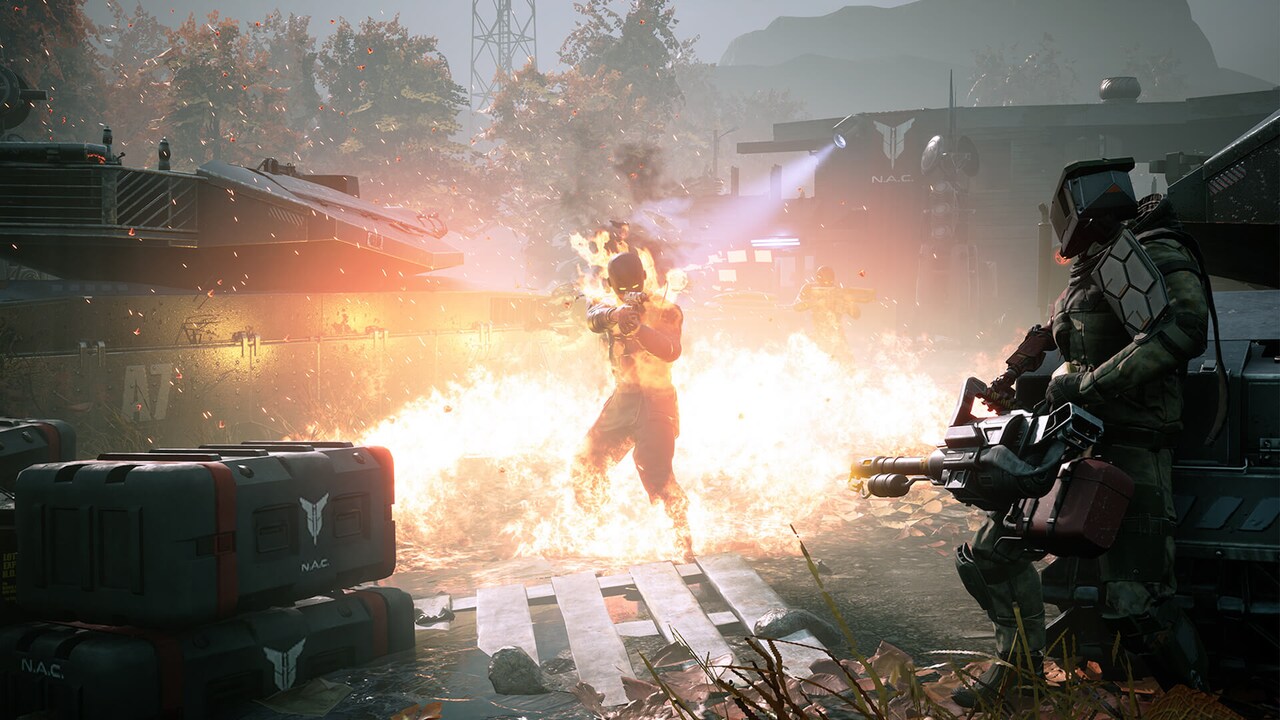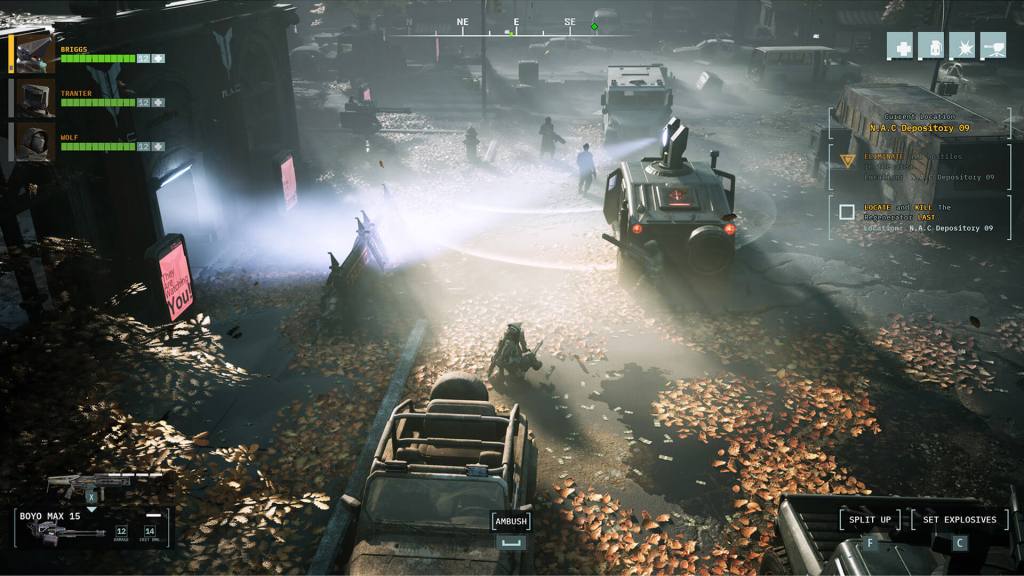Corruption 2029 is one of the clearest examples ever of why a game’s theme matters. On paper, I should love this game: it’s from the same developer that made Mutant Year Zero, it’s a turn-based tactics game that borrows much of its stealth-exploration and combat design from that game, and it’s got a similarly attractive gloomy aesthetic to its setting. I loved Mutant Year Zero’s tense stealth design and beautifully broken world, and was more than ready for more of the same.
There’s just one problem: Corruption 2029 doesn’t appear to be about anything.
Videos by VICE
There’s a story, true. Maybe you’ve heard it before: Civil War 2 has broken out and America has divided into Populists vs. Authoritarians, two circles that definitely do not overlap on any political Venn diagram. The war is largely fought with cybernetically modified soldiers who have lost so much of their humanity that they are merely “units” more than people, which seems like genre self-reference to no real end. Your soldiers’ barks are indistinguishable from those in any other tactics games. They quietly exult when they notch a kill, they get tense when under fire. Their loss of humanity seems to be reflected mostly by the occasional artificial limb, and some odd choices around headgear.

In the missions themselves, Corruption plays very similarly to Mutant Year Zero and is satisfying in a lot of the same ways. The tactical dilemmas you face in mission after mission are functionally identical. But if half this game is about the process of exploration-via-reconnaissance, then where Corruption fails is in giving us no setting worth exploring, no mystery worth unraveling.
The cute Muppet militants of Mutant Year Zero were not just on a mission to save their home, but were constantly confronted by the mystery of their own origin and alienation from the ruins of the human world that preceded them. Your units in Corruption, on the other hand, are mostly finding notes that track the crimes of a war whose stakes and battle lines are never well-established. You hear enemy soldiers talking about how their side is in full retreat and they wish they could desert their post, but who are they? If this war is being waged by dehumanized killing machines, why does everyone sound like they’ve just been held-over for a second shift?
The first time you visit the ruins of a motel, the distant commander who gives you instructions throughout each mission comments on how it was turned into a re-education camp… or worse. But across multiple visits to this same location in the first several missions of the game, I never got a better sense of what ideology this Red Roof Gulag served, or what happened to the people who were allowed to move on from it.

Because the game never does much to win any buy-in for its premise, the missions quickly started to feel like chores in a way that MYZ never did. It doesn’t help that the enemy AI seems fairly passive. Enemies run toward the battle once your team has been detected, but they also will get “stuck” in cover as they fail to identify a more aggressive move. The sheer number of times they will shelter in place while your sniper picks them off turn-by-turn, or they are slowly flanked, makes some of these fights feel more like executions.
Tactics games can take on a procedural cast, and if there’s not a ton of variation in enemy types, nor a lot of flexibility in the tactical options given to players, then it’s really going to come down to whether the hook of the setting, the story, and the overall atmosphere is enough to keep me going, despite the fairly flat experience of the battles themselves. Mutant Year Zero passed this test (and, to give it some more credit, also had an interesting meta-layer of decisions and resource allocation outside the battles themselves). Corruption 2029 fails it badly enough that I found it impossible to stick with after the first campaign.
My fear now, however, is that having had Corruption expose this many drawbacks to this design means that by the time I’m one again in command of a squad of heavily-armed animal commandos, I won’t be able to unsee some of the blandness under the surface.
More
From VICE
-

Photo: HollenderX2 / Getty Images -

Photo: janiecbros / Getty Images -

Photo: NATALIA ANDREEVA / Getty Images

